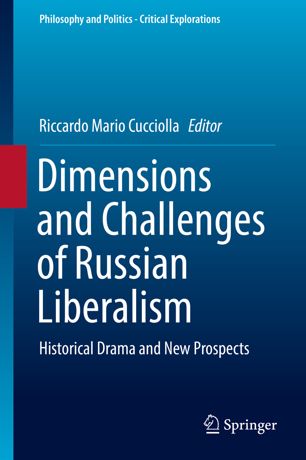

Most ebook files are in PDF format, so you can easily read them using various software such as Foxit Reader or directly on the Google Chrome browser.
Some ebook files are released by publishers in other formats such as .awz, .mobi, .epub, .fb2, etc. You may need to install specific software to read these formats on mobile/PC, such as Calibre.
Please read the tutorial at this link: https://ebookbell.com/faq
We offer FREE conversion to the popular formats you request; however, this may take some time. Therefore, right after payment, please email us, and we will try to provide the service as quickly as possible.
For some exceptional file formats or broken links (if any), please refrain from opening any disputes. Instead, email us first, and we will try to assist within a maximum of 6 hours.
EbookBell Team

4.0
36 reviewsLiberalism in Russia is one of the most complex, multifaced and, indeed, controversial phenomena in the history of political thought. Values and practices traditionally associated with Western liberalism—such as individual freedom, property rights, or the rule of law—have often emerged ambiguously in the Russian historical experience through different dimensions and combinations. Economic and political liberalism have often appeared disjointed, and liberal projects have been shaped by local circumstances, evolved in response to secular challenges and developed within often rapidly-changing institutional and international settings.
This third volume of the Reset DOC “Russia Workshop” collects a selection of the Dimensions and Challenges of Russian Liberalism conference proceedings, providing a broad set of insights into the Russian liberal experience through a dialogue between past and present, and intellectual and empirical contextualization, involving historians, jurists, political scientists and theorists.
The first part focuses on the Imperial period, analyzing the political philosophy and peculiarities of pre-revolutionary Russian liberalism, its relations with the rule of law (Pravovoe Gosudarstvo), and its institutionalization within the Constitutional Democratic Party (Kadets). The second part focuses on Soviet times, when liberal undercurrents emerged under the surface of the official Marxist-Leninist ideology. After Stalin’s death, the “thaw intelligentsia” of Soviet dissidents and human rights defenders represented a new liberal dimension in late Soviet history, while the reforms of Gorbachev’s “New Thinking” became a substitute for liberalism in the final decade of the USSR.